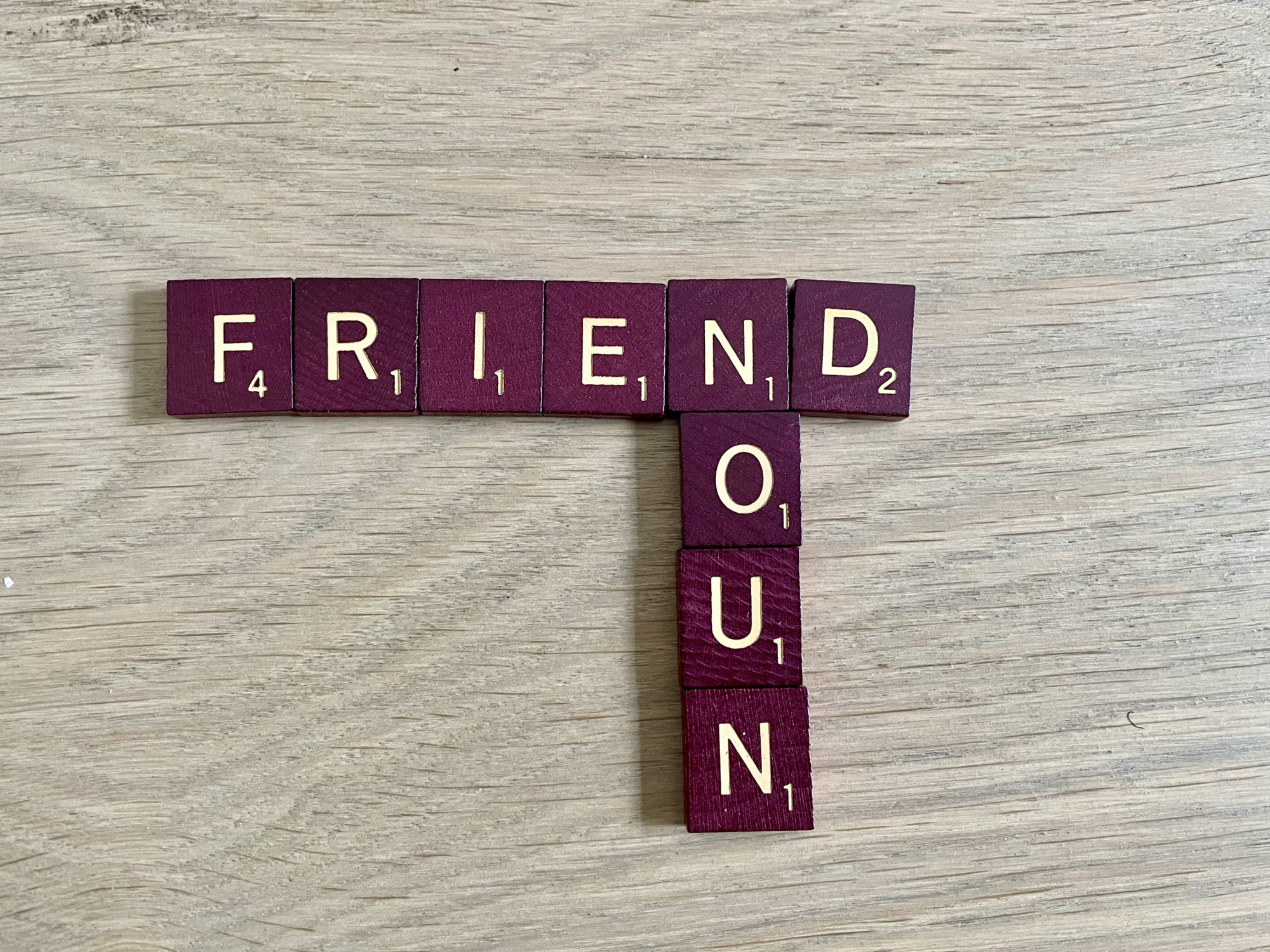
“Friend” is a noun. When it got turned into a verb, it emphasized the transactional nature of many relationships online. While the meaning differed across platforms, it usually meant it was someone whose updates you wanted to see on a regular basis. The platforms themselves then decided how much you would see, using every minor action of yours (intentional or otherwise), thereby controlling the relationship. The platform maintains the connection for you, and instead of sitting on a couch talking to one person, looking them in the eye, you are speaking to a crowd, none of whose eyes you can see, and hoping that keeps the relationship warmish.
That’s not a friendship. That’s a potentially useful exchange of information. The act of “friending” the person was a one-off initiation of this exchange. Building a friendship, making someone into “a friend,” takes more.
Friendships can be created online, but they require:
- the ability to form a connection. One way to form connections is to have a shared purpose, goal, experience, or project/effort of some kind. That’s why we feel so strongly about Product-Led Communities.
- a constructive alignment of values that allows collaboration.
- getting to know the person, in a nuanced way—what they care about, their sense of humor, how they solve problems, how they spend their time, whether they are an asshole to people close to them.
- a commitment to show up. Online groups where people intend to show up on schedule, and actually follow through, are much more impactful rather than ones where there is no firm commitment to show up and people float in and out as they choose. The decision to make this group a priority means a lot to the people in the group.
- enjoyment of the interaction—an interaction with a real friend makes you feel better after than you did before.
- relaxation, enjoyment, or learning. Interactions when you can be yourself, laugh, not watch every word, or walk away smarter, with a new perspective, are all interactions you will want to have again.
- time, to develop all these dimensions of the relationship over many months.
As I look back at last year, I realize there were a lot of events, one-off talks, lectures, and hangouts. Some involved icebreakers, which are helpful. There were efforts at “community,” but did those result in real friendships, as opposed to “friending”? Real community, versus minor interactions that are easily forgotten?
A couple of weeks ago, I was on a Clubhouse chat where an influencer told the audience we were all lucky to be on the platform this early because we could 100x our audiences if we did things right. And that would be very valuable. That’s our mindset right now: do this thing because it’s valuable. Hang out here because you can meet XYZ, who might invest in/hire/help you down the road.
There is a place for this and there is definitely value in this kind of transactional relationship. But the internet has skewed toward this worldview because when measurable value is created, it can also be extracted.
But how do you really make the online world less transactional? How do you enable the formation of deeper connections where people are willing to spend the time because they enjoy the company of the other person or group rather than find transactional value in it?
There is value in deeper, more meaningful connections and it behooves us to think about how to create these interactions online. The “value” may be harder to measure immediately, but over the long term, will likely lead to more valuable, resilient platforms, and therefore a healthier internet.
I’m thinking out loud here. How did you feel about your online experiences last year? Do you want to repeat them? What would you like to see changed or improved? Please reach out—I’d love to discuss (in a non-transactional way!)